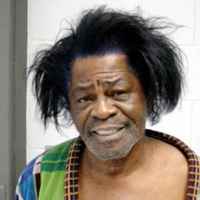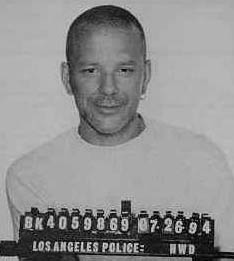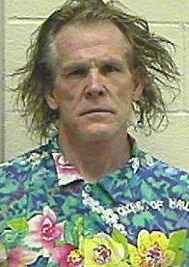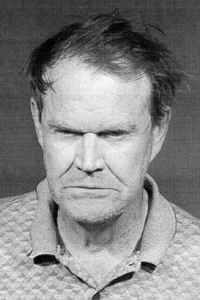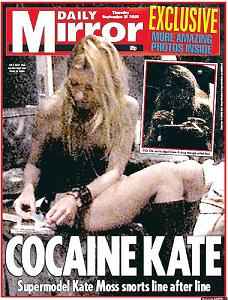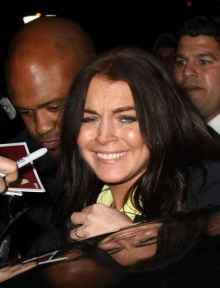Some thoughts on the “celebrities’ disease”
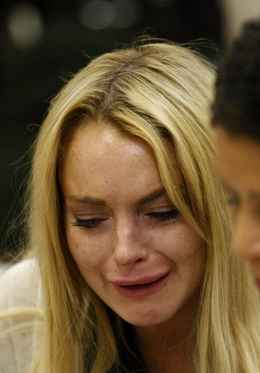
Originally published February 12, 2011
I’d be sitting in a big beach house in Malibu, living the Charlie Harper life, if I had a nickel for every time I read about a celebrity who’s allegedly or admittedly hooked on booze or pills or coke or meth or some such substance. What is it about these people that makes them so inordinately likely to get addicted? If half the stories in the media are true, substance abuse among actors and rock stars is basically pandemic—certainly much more prevalent than the roughly one-in-eight rate recorded among Native Americans, who are the most addiction-prone demographic group identified in official stats (probably because no one has thought to consider celebrities as a separate demographic group).
The more I ponder this question, though, the more I wonder how some actors and other performers resist addiction—considering how many factors there are in their lives that push them into that behavioral trap.
From the most obvious (to me), to the least obvious:
#1. Asynchronous lives
Successful actors rarely have normal working routines. Their schedules bring to mind that saying about the lot of soldiers in war—brief moments of intensity punctuating long stretches of boredom. That boredom has to be endured somehow, and drugs and booze are the classic tools for making time pass swiftly.
#2. Surrounded by enablers
Being rich and famous usually means getting your way ~100% of the time. People just don’t say “no” to a celebrity. So in addition to having a greater need for drugs, they have less trouble getting them. Even when they run up against the law, they tend to get extra slack—not just because they can afford expensive lawyers but because they are who they are.
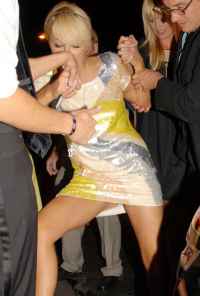
#3. Capacity for self-control grows weaker.
Self-control, mediated largely through prefrontal cortex (PFC) structures in the brain, is now recognized as one of the keys to resisting addiction. But self-control is like a muscle—you gotta use it or lose it. Living a pampered, empowered celebrity life as an adult means losing it.
#4. Development of adult self-control may be blocked if you were/are a child celebrity.
Childhood and early adulthood comprise the period of life when your basic capacity for self-control is still being formed, via the development of the PFC, the last brain region to mature. If you go through that period with little need to exercise self-control, and frequently hit your brain with alcohol and lots of recreational drugs (which tend to weaken the PFC’s restraining influence on behavior), then by the time you reach adulthood, you and your functionally impaired PFC might be permanently incapable of ever having a normal, modern, adult level of self-control—just as a childhood polio victim with underdeveloped legs will never run a marathon.

#5. Exposure to a hugely powerful gateway drug: fame.
Shortly after Michael Jackson died, I heard someone—Liz Taylor?—quote something he had told her once about being on stage in front of thousands of screaming fans: It had given him a bigger rush than any drug.
I can believe it. But even celebs can’t be on stage, in front of the fans and the paps and getting that intense fame rush, every day. For some of them, the fame-lulls must be hard to endure without artificial stimulation.
I’d guess that the hardest fame-lull of all to endure is the one that comes with the final, permanent slide into obsolescence, when the fame rush can no longer be attained in the normal way, and one’s agent won’t return one’s calls, and drugs (or reality-TV infamy?) are the only options. Drugs are often blamed for ending celebrities’ careers, but I’d guess that in many cases the career slide starts first, prompting more and more drug use, and then the vicious, quickening spiral of personal and money and legal troubles, bad press, rehab, and career oblivion.

#6. Low self-control is probably already in their genes.
The development of a high capacity for self-control is arguably one of the proudest achievements of Western peoples and their culture. Even for small children a high degree of self control is a remarkably strong predictor of future success in the modern world. But there seem to be a few narrow areas of modern life in which low-self-control people still thrive.
I’m referring to performers—actors and musicians, mainly, but also some athletes—and it seems plausible that when they are performing, their innate lack of inhibition or their ability to switch it off at will becomes a bonus. It enables them to access and develop talents that the rest of us can only dream about.

David Foster Wallace touched on this in an essay, “How Tracy Austin Broke My Heart:”
It is not an accident that great athletes are often called “naturals” because they can, in performance, be totally present: they can proceed on instinct and muscle-memory and autonomic will such that action and agent are one.
As far as I can tell, there is hardly any empirical evidence for this idea, although that may be only because hardly anyone has formally and rigorously looked into it. This 2004 U-Mass PhD dissertation on football players and impulsivity reported that:
Players’ scores of functional impulsivity related to their athletic success; players who reported that they like to make split-second decisions and take advantage of unexpected opportunities were also more likely to be rated positively by a professional scout, play and start in games, and survive in the NFL.
The idea that people with ADHD—closely related to impulsivity—have an edge in sports has also been bouncing around, although, again, more as a common-sense observation than as an experimentally tested scientific finding.
It may be hard for us ordinary folks to see at first why innate impulsivity could be so important in these public performance contexts. We in the modern West are so used to watching pro ballgames and Hollywood feature films that I think we are largely unaware of the surreal intensity of what is going on, physically and emotionally, on the field and on the screen. It’s just not easy for most of us to operate at that level, though. We would hold back or freeze up.
Here’s Wallace on his own inhibitory issues during minor competitive tennis matches:
Ever try to concentrate on doing something difficult with a crowd of people watching? … worse, with a crowd of spectators maybe all vocally hoping you fail so that their favorite will beat you? In my own comparatively low-level junior matches, before audiences that rarely hit three digits, it used to be all I could do to manage my sphincter. I would drive myself crazy: “…but what if I double-fault here and go down a break with all these folks watching?”…
Now, obviously, some actors and athletes have had to exert a substantial amount of self-control—e.g., in being disciplined enough to practice their skills—to get where they wanted to go, and in that sense they should be less impulsive and more resistant to addiction. Yet there may be something about repeated performance, in which the usual prefrontal restraints are forced to fall away and action becomes efficient and instinctive, that has the opposite effect. Check out this passage from an acting coach’s blog:
If the actor is to allow themselves to follow their impulses without blockages, then the self-editing, self-criticism and self-abuse of self-consciousness must be sidestepped. The actor must respond freely within the truth of the moment.
I.e., just do it, and don’t get all prefrontal and inhibited about it. Logically, if you practice this sort of thing enough, it will, so to speak, come naturally, and you will follow your impulses without blockages, and maybe without being able to get those “blockages” back again, even when you need them.
Stimulant drugs actually force this disinhibitory process in the brain, and in that sense can be a performance-enhancer. That’s probably why cocaine traditionally has been so popular among actors and other performers, particularly those doing live shows. As a kid I used to wonder why top comedians doing stand-up—e.g., Tim Allen, Robin Williams, Steve Martin—so often looked watery-eyed.

The key point here, though, and the sad irony, is that even without practicing impulsivity or forcing it with drugs, an inborn impulsivity, in the right environment and with the right mix of other talents, may lift a person to the realm of fame and fortune—yet leave him or her defenseless against the life-ruining temptations that lie in wait there.
Why isn’t this studied more? Why don’t the researchers who currently study, say, the causes of Native Americans’ high addiction rates, turn their attention to the Hollywood tribe or to former elite athletes? How about substance-use prevalence analyses, and genome-wide association studies, among these celebrities and their offspring? I suspect that if such studies could ever be done, we’d conclude from them that celebrity, at least medically speaking, is something to be feared more than desired.








